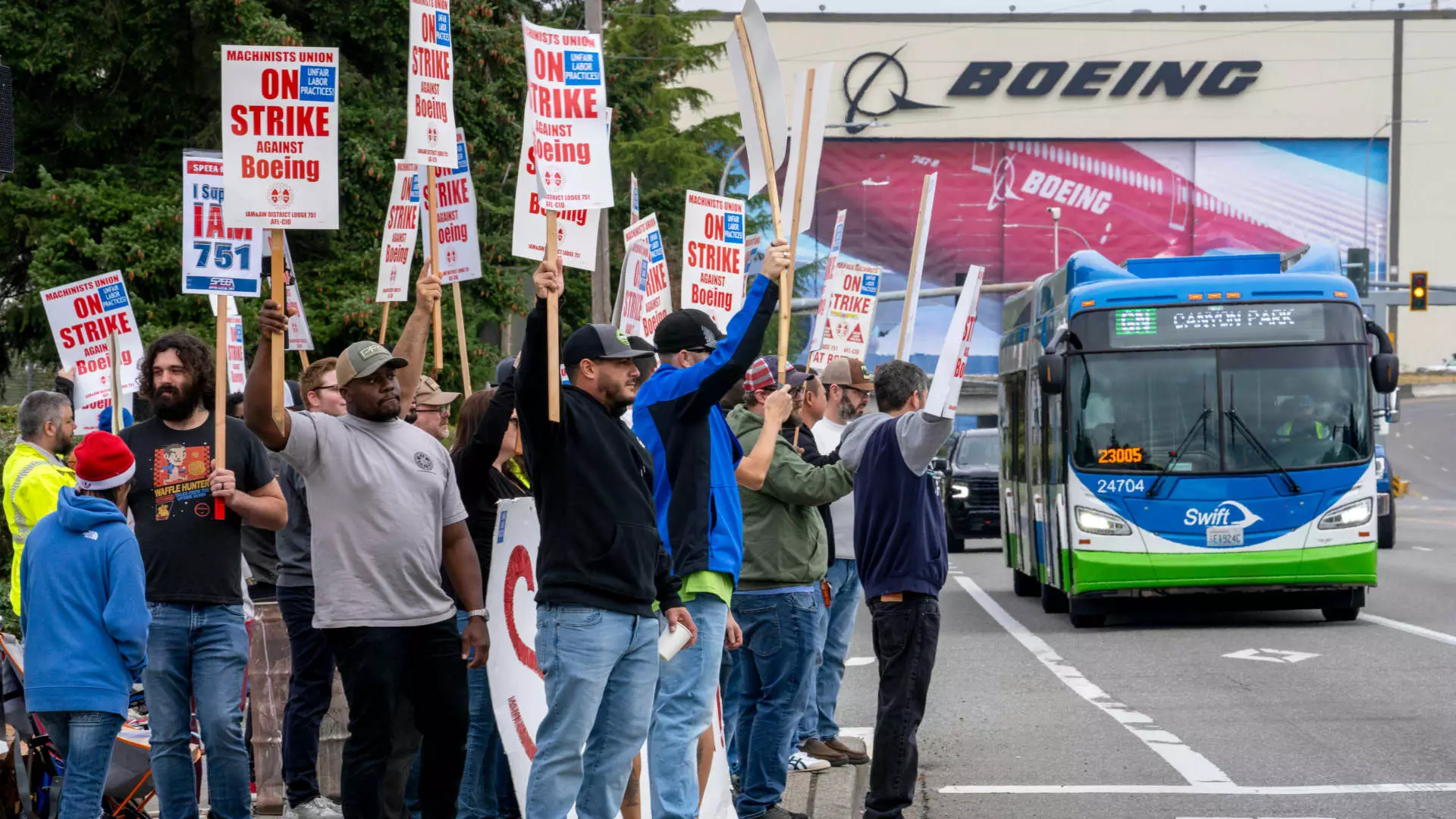In a strategic move to mitigate financial strain due to an ongoing machinist strike, Boeing has announced temporary furloughs affecting thousands of its U.S. workforce, including executives and managerial staff. CEO Kelly Ortberg’s communication to employees reflects the company’s urgent need to conserve cash in an environment of uncertainty. This decision comes on the heels of a significant development where over 30,000 machinists in the Seattle region and Oregon decisively rejected a new labor contract, with an overwhelming 96% voting in favor of a strike.
The negotiations between Boeing and the Machinists Union have been fraught with tension. Boeing’s initial proposal, which included a 25% wage increase and a tentative contract, was eventually dismissed by the workers. Many employees argued that the proposed raises were insufficient to offset the escalating cost of living in the Seattle area and expressed discontent over the lack of restored pension benefits. This feedback highlights a broader issue within the workforce: the disconnect between corporate offers and employee needs amidst growing financial pressures.
Ortberg’s response to the strike reflects a delicate balancing act between addressing employee grievances and maintaining the company’s operational viability. He announced that affected employees would take one week of furlough every four weeks throughout the strike period. Furthermore, Ortberg and his executive team indicated they would take corresponding pay cuts. This proactive stance reveals an attempt to foster solidarity within the company, although it raises questions about the long-term impacts of such measures on morale.
Boeing’s Chief Financial Officer, Brian West, has echoed the call for austerity by implementing hiring freezes and pauses on employee raises, alongside temporary layoffs of non-essential contractors. The financial implications of the strikes are still uncertain, but there is pressure mounting on Boeing’s leadership as they contend with a staggering $60 billion debt alongside reputational challenges stemming from recent safety and quality troubles, including a serious incident involving a door plug blowout earlier this year.
Amidst these challenges, Ortberg emphasized that certain critical activities related to safety, quality, and customer support will continue unabated. This highlights Boeing’s commitment to prioritizing production, specifically referencing its 787 Dreamliner line, which operates in a non-union environment located in South Carolina. Despite the turbulence, this focus on essential production tasks illustrates a commitment to maintaining operational integrity and positioning Boeing for long-term recovery.
Boeing’s current predicament underscores a pivotal moment for the company, facing both internal strife and external economic pressures. The furloughs of tens of thousands of employees, combined with ongoing negotiations and management’s serious financial posture, paint a complex picture of a corporation striving to regain its stability. As both management and labor navigate these turbulent times, the outcomes of their negotiations and decisions will be crucial in determining Boeing’s trajectory in the months and years to come.


Leave a Reply